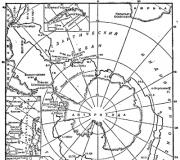James Graham Ballard Hello America. Mental disorders as a source of inspiration
The creator of transgressive fantasies, James Ballard, became the most striking, extraordinary and memorable figure in English literature of the second half of the 20th century. The author first became famous through collections of stories and novels, then he began publishing psychological thrillers, which caused a lot of controversy among critics and readers.
James Ballard: biography
Was born future writer in 1930, November 15. His father was a British diplomat, so it is not surprising that the boy was born in Shanghai. Second World War I found the family in China. At the very beginning of the war, little James and his parents were placed in a concentration camp for civilians belonging to Japan.
After the end of the war the family was released and returned to London. Here Ballard James begins to go to school, after which he enters the BBC in Great Britain. Surrealist art had a huge influence on the future writer during his years of study and work.
First novel and other works
James Graham Ballard began his writing career in 1956. At first he published short stories, which happily accepted science fiction magazines. Only in 1961 the writer’s first novel, “The Wind from Nowhere,” was published, written in the genre of a disaster novel.
In 1970, the writer published his tenth collection of stories, “An Exhibition of Cruelty.” The book brought Ballard real fame, causing a lot of controversy and a wave of criticism. Many of the works included in it could only partially be called science fiction. Ballard was never particularly interested in such traditional trappings of the genre as technology, progress, alien civilizations, the future and the like. Special attention the writer paid attention to psychological changes in a person under the influence of extraordinary circumstances. It was Ballard's passion for human nature that came through most clearly in the collection. The writer's heroes were people obsessed with phobias, ideas, and a morbid passion for various forms violence.

Mental disorders as a source of inspiration
A continuation of these ideas was the novel “Car Crash,” written in 1973. In the work, J. G. Ballard describes the sexual pleasure that his hero receives from car accidents. The character constantly replays in his head the plots of various accidents, in which even Elizabeth Taylor and Jacqueline Kennedy became participants. The American publisher, having received this manuscript for publication, returned it, calling the author mentally ill.
All subsequent publications of the writer were also devoted to various mental pathologies. Only in 1979 did the themes of Ballard’s works change. Soon the novel “Factory of Endless Cuts”, which is of an erotic nature, was published, and autobiographical works"Empire of the Sun" and "Hello America".
Hidden in the subconscious
Since the 80s of the 20th century, Ballard James has turned his attention to the dark sides of the human subconscious. In unremarkable, everyday, everyday situations, the author shows the reader hidden violence. These were the novels “Distraught”, “Cocaine Nights”, “Supercannes”, “Millennium People”.

Ballard was considered by some of England's leading language stylists and was often interviewed and sought for his opinions on political and social events. However, the writer himself did not like to be in public, never participated in political or public life, did not pay attention to the development of Great Britain. In the 70s, Ballard moved to the London suburb of Shepperton, where he lived until the end of his days.
Autobiography and death
In January 2008, the autobiographical novel “Miracles of Life” was published. Two years earlier, the writer admitted in an interview with the Sunday Times that he had been given a terrible diagnosis - prostate cancer. It was the illness that prompted Ballard to write his biography.
The writer died in London on April 19, 2009 at the age of seventy-nine. Such life path James Ballard passed.
"High-rise"

The book starts off very urban. A huge construction project consisting of five residential complexes - high-rises - is being prepared for delivery. It is in one of these buildings that the events of the novel will take place. The high-rise will turn into a kind of city, where residents will be divided into social classes: the lower floors, where the apartments are the cheapest, will be occupied by waitresses, flight attendants and other representatives of low-paid professions, and at the very top will be penthouses of the richest and the most famous representatives elite.
Ballard James, choosing the main character from all this diversity, settles on a representative of the middle class. This is Robert Lang, who occupies an apartment on the twenty-fifth floor. The man recently turned 30, teaches at a medical school and is trying to recover from a divorce.
This work is one of the novels dedicated to an urban catastrophe. "High-rise" is not a dystopia, as it might seem at first glance, it is rather psychological thriller which shows how modern man slowly degrading under the influence of developing technologies.
"Exhibition of Cruelty"
The collection includes nineteen stories, united by one theme. In his works, the author consistently addresses various pathologies and deviations in human behavior. As noted above, the book was very conflicting reviews, however, undoubtedly made Ballard famous.
Only in 2012 the collection was published in Russian. The translation by Viktor Lapitsky, according to critics and readers, turned out to be very successful. The only drawback was the limited edition - only thirty copies.
"Empire of the Sun"

James Ballard, whose books mostly received very different reviews, also turned to his past in his work. An example of such work was the book “Empire of the Sun.” The work tells the story of life in a Chinese concentration camp during the Japanese occupation. It was based on those few years of World War II when Ballard was just a boy. The story truthfully tells about deaths, attempts to survive, hunger, and the cruelty of people to each other. The most amazing thing about the book is that there are no moral assessments here. Everything that happens is seen through the eyes of a child who adapts to the hardships of war. We can say that this is practically a collection of facts that the author himself witnessed.
In 1987, the novel was released. Directed by Steven Spielberg and main role played by the then very young Christian Bale. Ballard was incredibly delighted acting the latter, like most critics. However, the film itself received very mixed reviews.
"Cocaine Nights"

This novel, published in 1996, is a very strange mixture of dystopia and detective story. On the Mediterranean coast of Spain, a sophisticated murder is committed in one of the elite resorts. Main character works is taken up by amateur investigation. However, Ballard James did not change himself here either: the main theme of the novel is not the search for the criminal. Much more important questions are raised here: what can shake up modern bourgeois society, awaken it from the high fences of mansions, antidepressants and satellite television?
The work, like all of Ballard’s work, touches on issues of human nature, moral principles and understanding of good and evil.
"Supercannes"
The novel was published in 2000 and became a kind of thematic continuation of “Cocaine Nights.” Events again unfold on the Mediterranean coast, but not at an elite resort, but in a business park. The hero has to get back into detective story and unravel the dark secrets hidden by representatives of modern business.
Former aviator Paul Sinclair and his wife Jane arrive at the Eden-Olympia business park, located on the Cote d'Azur. Here Jane must take the place of pediatrician and therapist. Until recently, this role was played by David Greenwood, who went mad and shot ten people in a rage. Ballard's characters have to find out what drives people crazy, what secrets a prosperous therapeutic complex hides, and how contagious violence can be.

"Wonders of Life: From Shanghai to Shepperton"
Ballard's last, in which the writer very frankly tells the story of his life. First, the reader finds himself in Shanghai, where the author spent his childhood, then his imprisonment in an internment camp is described (not as colorful and detailed as in “Empire of the Sun”). After the end of the war, Ballard's family returned to Britain; the country is devastated by war. Then the story begins about creative development writer. Ballard talks very openly about his first attempts at writing stories, about the reasons that prompted him to create “The Cruelty Exhibition.” But the writer devotes time not only to creativity. He also talks about how difficult it is to be a single father, which he became after the death of his wife.
The book was a real gift for fans of Ballard's work.
Small conclusion
Books, a biography and a collection of works can say a lot about a writer. James Graham Ballard appears before the reader as a man who sees the dangers that lie modern society. His books are not madness, but a warning. Having seen in childhood the bestial faces of people prone to violence, he tirelessly warns humanity. Reminds us of the unpleasant side of our nature that needs to be fought.
British writer, one of the major figures English literature second half of the 20th century. His initial fame came from science fiction stories and novels, and later also from psychopathological thrillers (Car Crash, Concrete Island, etc.).
James Ballard was born into the family of a British diplomat. During World War II, he was with his parents in a Shanghai Japanese concentration camp for civilians. After his release he moved to London, where after finishing school he joined the Royal Air Force. On Bollard big influence had the art of surrealism. Since 1956, he began publishing stories in science fiction magazines. In 1961, his first novel, “The Wind from Nowhere,” was published, like the next two, written in the genre of a disaster novel. In 1964, he remained a widower with three children in his arms.
In 1970, Bollard's tenth collection of stories was published, “An Exhibition of Cruelty,” which brought the writer notoriety. The stories included in the book fell only vaguely into the NFL category. Bollard was previously least interested in such aspects of the NFL as progress, technology, the future, extraterrestrial civilizations, etc. - his writing interest was focused on describing changes in human psychology under the influence of various kinds of extraordinary circumstances. “The Cruelty Exhibition” shifted the emphasis of the writer’s prose from psychology to psychopathology: from now on, Ballard’s characters were possessed different ideas, phobias and a morbid passion for violence.
The culmination of the new period of creativity was the novel Crash (1973), filmed by David Cronenberg in 1996), in which the writer established a sexual connection between a person and car accidents (their process and consequences), leading the hero to a complete obsession with engineering death in a car accident. In the novel, Ballard, through the mouth of his hero, developed the death of Elizabeth Taylor; in another story of the same time, the plan to assassinate Jacqueline Kennedy was described. The American publisher returned the manuscript back to England with the note “The author is clearly pathological\ill.” Next came the novels “Concrete Island” (1973) and “High-Rise” (1975) - also representing the psychological distortion of the consciousness of a person driven into hopeless niches big city.
A departure from the urban theme was the new novels “Factory of Endless Dreams” in 1979 (a surreal extravaganza erotic in nature), “Hello, America”, “Empire of the Sun” (an autobiographical novel, based on which Steven Spielberg directed the film of the same name in 1987). Since the 1980s new topic Bollard - disclosure dark sides human subconscious in actions ordinary people, which absorbed microdoses of violence carefully measured by the author - the novels “Distraught” (1988), “Cocaine Nights” (1994; and its more developed version “Supercannes”, 2000), “Millennium People” (2003).
Bollard is recognized as one of England's leading language stylists and visionaries. He was willingly interviewed on topical topics, although the writer himself appeared little in public and did not participate in any social or literary activity Great Britain. Since the 1970s, Ballard has lived in the London suburb of Shepperton. The last novel(“Kingdom of God”) was released in 2006.
Ballard's autobiography, Miracles of Life, was published in January 2008, and in an interview newspaper The Sunday Times Ballard told him he was diagnosed with prostate cancer in mid-2006 and it prompted him to write his autobiography.
In 1975-1977, Ballard creates a conventional “trilogy of urban disasters”, in which he demonstrates what a thin line separates a modern, civilized, self-confident person from falling into the abyss of hungry instincts that split personality into primitive components.Three Apocalypse Scenarios by J. G. Ballard.Picture one. Ecological catastrophy leads to global warming. The world is flooded with water. Primitive reptiles and giant plants, like thousands of years ago, ascend onto the stage of History. The voice of Reason falls silent under the pressure of instincts.
Or so - the seas are covered with a film that does not allow water to pass through. The rains stop, and the face of the planet is scorched by a severe Drought.Dies in a car accident famous TV presenter Robert Vaughan. But few people know that the deceased himself designed the emergency situation. For both Vaughan and his surviving friends who love unconventional sexual fun, sex in a car on the verge of an accident could not be compared with any other way of obtaining pleasure...The prose of James Graham Ballard (b. 1930), while remaining essentially science fiction, has long taken its place in the pantheon of High Literature.
The ghostly landscapes of his disaster novels are presented in a refined form, the adventures of the heroes turn into a risky odyssey, on the verge of clairvoyance and madness.Forty floors, a thousand apartments, two thousand residents - this is a high-rise building, one of five planned in the new residential complex in London. Full self-sufficiency, including shopping mall, hairdressing salon, two swimming pools, gym And primary school for children - undoubtedly, this is a model of the future, a new social structure, brave new world...One of the first collections in Russia by a British science fiction writer, a classic of the genre, a leading author " new wave", James Ballard.
The death of civilization, new technologies, psychedelics, everyday sketches on the verge of realism and mysticism - no matter what Ballard writes about, his works are always imbued with subtle psychologism and make the reader think.
Content:
* The Sunken World (novel, translation by D. Litinsky)In the distant future, the poet's work turns from a semi-mystical art into an ordinary craft. The author only needs to set the parameters of the future creation and the computer will produce any poem, sonnet or poem. Poets living in Scarlet Sands live a calm, measured life, until the mysterious and beautiful Aurora Day appears there...In the distant future, the poet's work turns from a semi-mystical art into an ordinary craft. The author only needs to set the parameters of the future creation and the computer will produce any poem, sonnet or poem. Poets living in the Purple Sands live a calm, measured life until the mysterious and beautiful Aurora Day appears there...
James Graham Ballard(James Graham Ballard) - British science fiction writer, classic of the genre, one of the leading authors, heralds and apologists of the so-called movement. “new wave” (new wave), its British flank (along with Aldiss, Moorcock, etc.).
James Ballard was born on November 15, 1930 in Shanghai in the family of a British diplomat. During World War II, he was with his parents in a Shanghai Japanese concentration camp for civilians. After his release he moved to London, where after finishing school he joined the Royal Air Force. Ballard was greatly influenced by the art of surrealism.
Since 1956, he began publishing stories in science fiction magazines. Already in these early stories the main features of its creative manner: richness of fantasy, complicated metaphors, stylistic grace, paradoxical perception of reality. In 1961, his first novel “The Wind from Nowhere” was published - like the next three - written in the genre of a disaster novel. The novel was written by Ballard during two weeks of vacation, in order, as he said, to understand what it means to be professional writer. After the successful publication of the work in 1962, he left his job as editor at the journal Chemistry and Industry and devoted himself entirely to literature.
In 1964, New Worlds magazine, along with a long editorial, published an article by J. G. Ballard, which formulated the basic principles of a new direction of fiction, later called the “new wave” by Judith Merrill: high literary standards, new topics, in-depth focus on “ human dimensions" His programmatic goal was to explore human psychology in a modern big city, what role sex and violence can have for his existential survival, and what forms they can take.
In 1970, Ballard's tenth collection of stories, “The Atrocity Exhibition,” was published, which brought the writer notoriety. The stories included in the book fell only loosely into the category of science fiction literature. Ballard was previously least interested in such aspects of science fiction as progress, technology, the future, foreign civilizations, etc. - his main focus was on changing human psychology due to the most extraordinary circumstances. “The Atrocity Exhibition” shifted the emphasis of the writer’s prose from psychology to psychopathology: from now on, Ballard’s characters were obsessed with various ideas, phobias and a morbid passion for violence.
The culmination of the new period of creativity was the novel Crash (1973), filmed by David Cronenberg in 1996, in which the writer established a sexual relationship between a person and car accidents (their process and consequences), leading the hero to a complete obsession with engineering death in a car accident. In the novel, Ballard, through the mouth of his hero, developed the death of Elizabeth Taylor; in another story of the same time, the plan to assassinate Jacqueline Kennedy was described. The American publisher returned the manuscript back to England with the note “The author is clearly pathologically ill.” Next came the novels “Concrete Island” (1973) and “High-Rise” (1975) - also representing the psychological distortion of the consciousness of a person driven into the hopeless niches of a big city.
A departure from the urban theme were the new novels “Dream Factory Unlimited” in 1979 (a surreal extravaganza of an erotic nature), “Hello America”, “Empire of the Sun” (an autobiographical novel based on which Steven Spielberg directed a film of the same name in 1987). Since the 1980s, Ballard’s new theme has been revealing the dark sides of the human subconscious in the actions of ordinary people who have absorbed microdoses of violence carefully measured by the author - the novels “Cocaine Nights” (1996) and “Supercannes” (2000), “Millennium People” (2003).
Ballard became one of England's leading language stylists and visionaries: he was eagerly interviewed on the topics of the day. Although the writer himself appeared little in public, he did not participate in any social or literary activities in Great Britain. Since the 1970s, Ballard has lived in the London suburb of Shepperton. The last novel (Kingdom Come) was published in 2006.
Ballard's autobiography, Miracles of Life, was published in January 2008, and in an interview with The Sunday Times, Ballard said that he was diagnosed with prostate cancer in mid-2006, which prompted him to write the autobiography.
James Graham Ballard(eng. James Graham Ballard, literary form J. G. Ballard; November 15, 1930 - April 19, 2009) - English writer, one of the largest figures of English literature of the second half of the 20th century.
Initially, his fame was brought to him by science fiction stories and novels, and later also by psychopathological thrillers (“Car Crash”, “Concrete Island”, etc.).
Biography
James Ballard was born on November 15, 1930 in Shanghai in the family of a British diplomat. During World War II, he was with his parents in a Shanghai Japanese concentration camp for civilians. After his release, he moved to London, where, after graduating from school, he entered the Royal Air Force. Ballard was greatly influenced by the art of surrealism. Since 1956, he began publishing stories in science fiction magazines. In 1961, his first novel, “The Wind from Nowhere,” was published—like the next two—written in the genre of a disaster novel.
In 1970, Ballard's tenth collection of stories, “An Exhibition of Cruelty,” was published, which brought the writer scandalous fame. The stories included in the book fell only vaguely into the NFL category. Ballard was previously least interested in such aspects of the NFL as progress, technology, the future, foreign civilizations, etc. - his main focus was on changing human psychology due to the most extraordinary circumstances. “The Cruelty Exhibition” shifted the emphasis of the writer’s prose from psychology to psychopathology: from now on, Ballard’s characters were obsessed with various ideas, phobias and a morbid passion for violence.
The culmination of the new period of creativity was the novel “Car Crash” (1973), in which the writer established a sexual connection between a person and car accidents (their process and consequences), bringing the hero to a complete obsession with engineering death in a car accident. In the novel, Ballard, through the mouth of his hero, developed the death of Elizabeth Taylor; in another story of the same time, he wrote a plan to assassinate Jacqueline Kennedy. The American publisher returned the manuscript back to England with the note “The author is clearly pathologically ill.” A couple of weeks after writing "Crash," Ballard flipped his car and flew into oncoming traffic. In 1996, David Cronenberg made a film of the same name based on Crash. “Car Crash” was followed by the novels “Concrete Island” (1973) and “High-Rise” (1975), which also represented the psychological distortion of the consciousness of a person driven into the hopeless niches of a big city.
A departure from the urban theme were the new novels “Factory of Endless Dreams” in 1979 (a surreal extravaganza of an erotic nature), “Hello, America”, “Empire of the Sun” (an autobiographical novel based on which Steven Spielberg directed the film of the same name in 1987). Since the 1980s Ballard's new theme is the revelation of the dark sides of the human subconscious in the actions of ordinary people who have absorbed microdoses of violence carefully measured by the author - the novels “Distraught” (1988), “Cocaine Nights” (1994; and its more developed version “Supercannes”, 2000), “People Millennium" (2003).
Ballard is recognized as one of England's leading language stylists and visionaries. He is willingly interviewed on topical topics, although the writer himself rarely appears in public and does not participate in any social or literary activities in Great Britain. Since the 1970s Ballard lives in the London suburb of Shepperton. The last novel (“Kingdom of God”) was published in 2006.
Ballard's autobiography, Miracles of Life, was published in January 2008, and in an interview with the Sunday Times, Ballard said that he was diagnosed with prostate cancer in mid-2006, which prompted him to write the autobiography.




